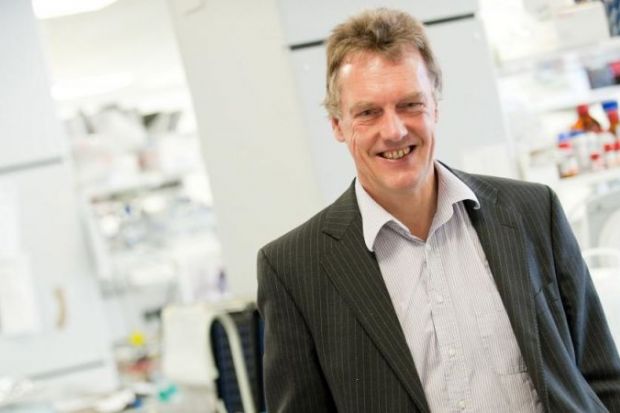Scientists cannot be expected to drop everything they are working on to turn their attention to beating Covid-19, according to a Nobel prizewinner.
Sir Peter Ratcliffe, winner of the 2019 medicine prize, said there was “a belief in some quarters that the whole world of science should stop what it’s doing and work on coronavirus”.
But Sir Peter, director of clinical research at London’s Francis Crick Institute, said that the best research was “passion driven” and not shaped only by societal needs.
“The investigator has a passion for what they do, they have self-belief that they can solve a particular problem, and they have some belief that the problem is important, and that’s what drives us all on,” he said.
Sir Peter, speaking before a lecture at a symposium organised by the European Organisation for Research and Treatment of Cancer (EORTC), the US National Cancer Institute (NCI) and the American Association for Cancer Research (AACR), highlighted that many of the treatments and tools being used to deal with Covid-19 emanated from cancer research.
These include knowledge about how viruses infect cells, the immune response, how to engineer viral proteins to create potential vaccines, and some of the diagnostic tests for Covid-19.
The conference, the 32nd EORTC-NCI-AACR Symposium on Molecular Targets and Cancer Therapeutics, was due to be held in Barcelona before being moved online due to the pandemic.
And Sir Peter compared scientists’ need to work on something they are passionate about to the outlook of one of Barcelona’s footballing heroes, Lionel Messi.
“Messi would play football regardless of how much he is paid. That’s what you’re harnessing in science; it’s that human passion that some people have to push themselves and to find things out,” Sir Peter said.
“If you have a problem like coronavirus and people say you have to work on coronavirus it doesn’t always harness that passion.”
Together with Gregg Semenza and William Kaelin, Sir Peter won the Nobel for their discoveries about the molecular machinery that regulates the activities of genes in response to varying levels of oxygen.
Register to continue
Why register?
- Registration is free and only takes a moment
- Once registered, you can read 3 articles a month
- Sign up for our newsletter
Subscribe
Or subscribe for unlimited access to:
- Unlimited access to news, views, insights & reviews
- Digital editions
- Digital access to THE’s university and college rankings analysis
Already registered or a current subscriber? Login








